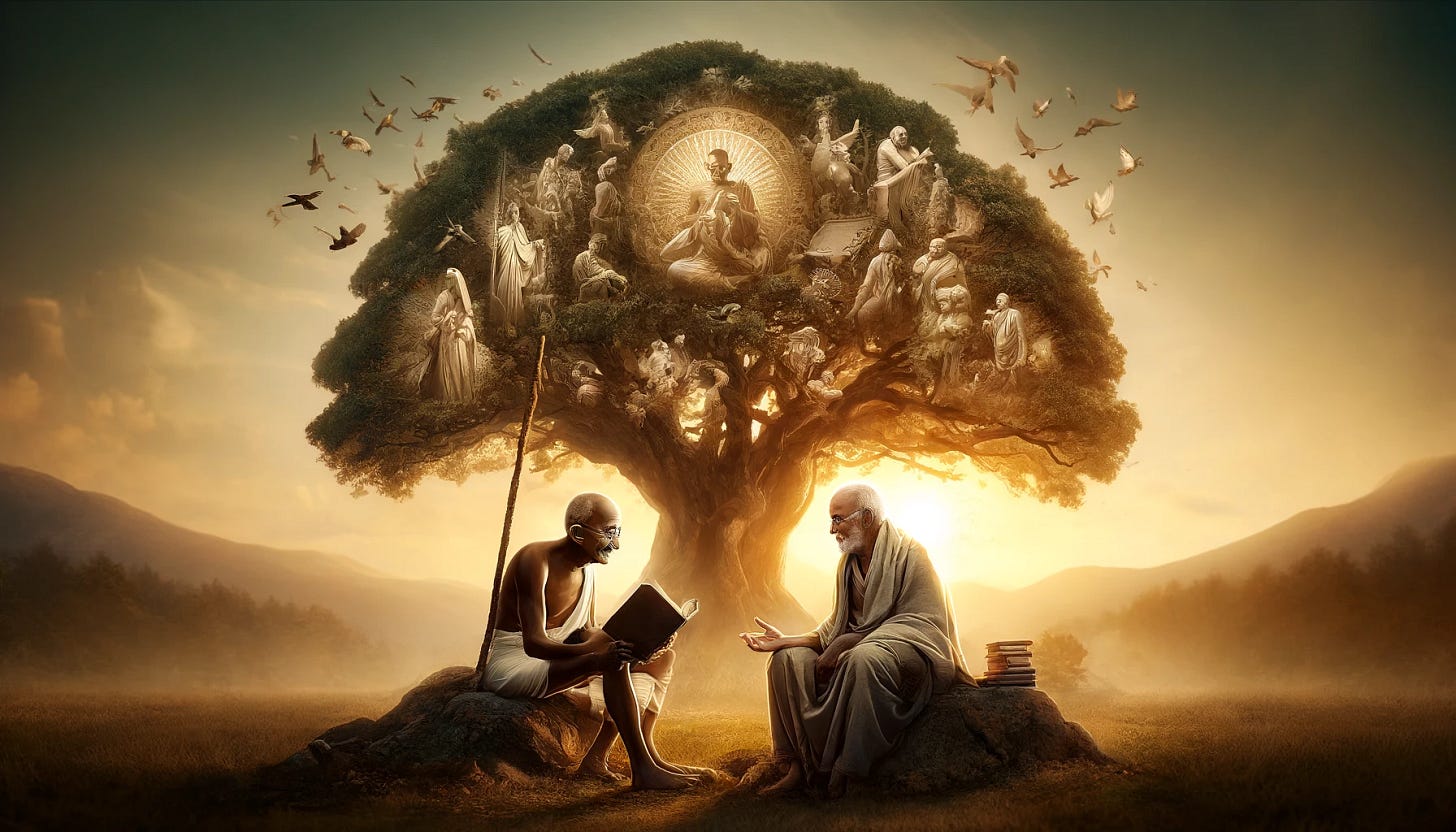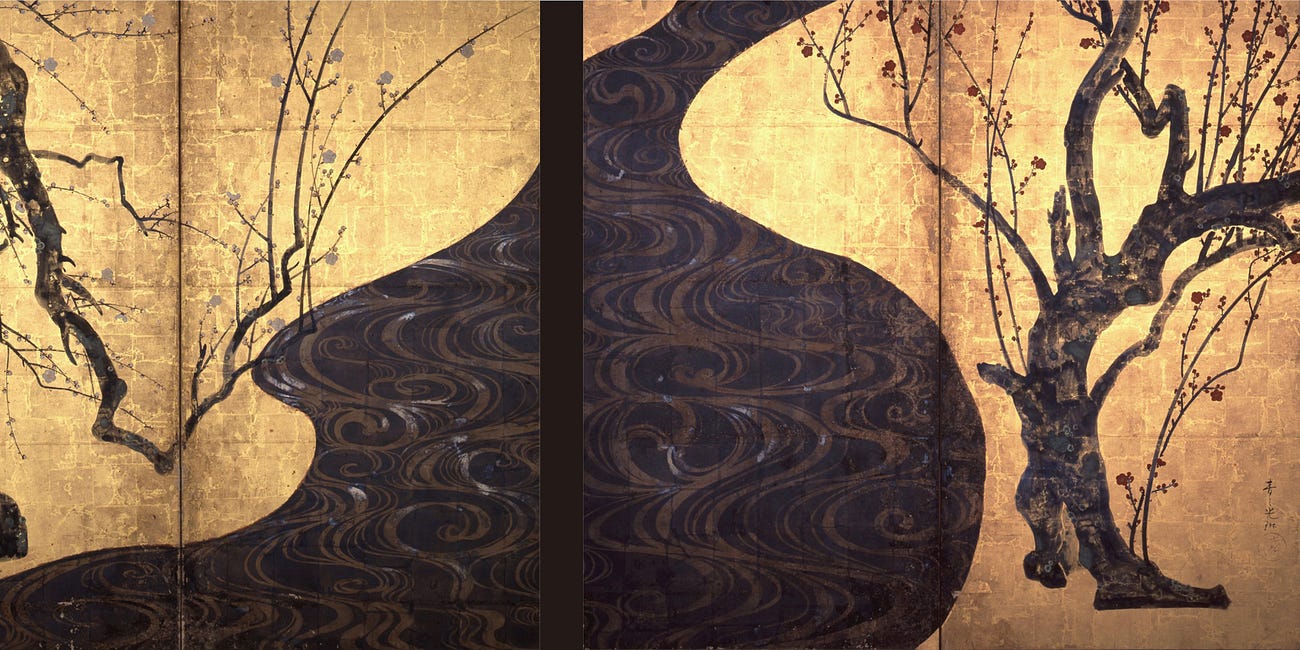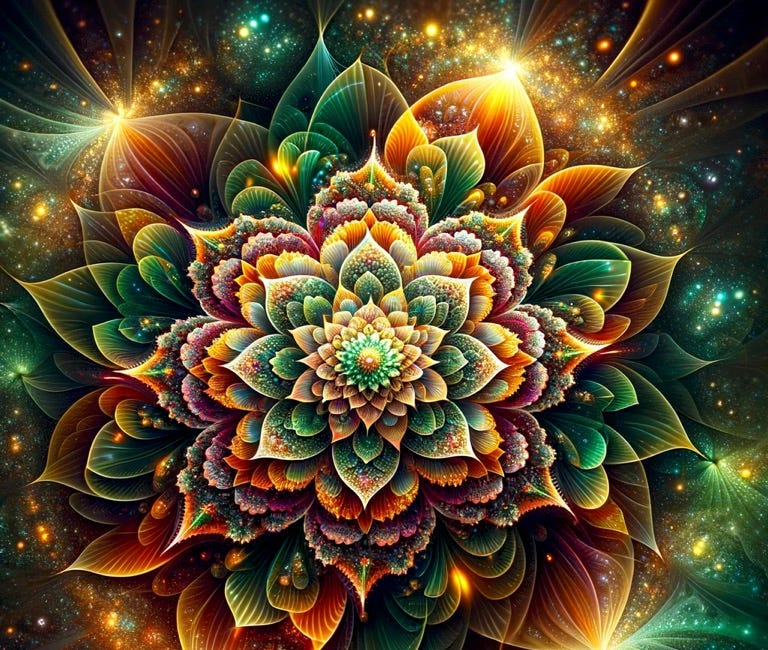Tolstoy and Gandhi, an unlikely relationship that changed the world
“Do what your body demands of you—attain glory, honor, wealth-and your life will be a hell. Do what your soul demands of you—attain humility, mercy, love—-and you'll have no need of any heaven. Heaven will be in your soul.”
Leo Tolstoy
In the sweltering heat of a South African summer, a young lawyer named Mohandas Gandhi (later lovingly called Mahatma, or “great soul” in Sanskrit) found himself wrestling with questions of justice, equality, and resistance. Though trained in the law, Gandhi's thoughts often ventured beyond the courtroom, seeking a path that could reconcile his deep spiritual longings with the harsh realities of racial discrimination and colonial rule.
It was during one of his long, solitary walks through the outskirts of Johannesburg that Gandhi stumbled upon a book that would dramatically shift the course of his life. The book was Leo Tolstoy's "The Kingdom of God Is Within You," its pages worn and its cover faded, as if it had been passed through many hands before reaching his. Gandhi, ever the voracious reader, was intrigued by the title and the reputation of its author, a Russian count who had turned his back on wealth and nobility to embrace a life of simplicity and spiritual seeking and to become one of Russia’s most profound and best known writers and philosophers.
As he delved into the book, Gandhi was struck by Tolstoy's fierce denunciation of violence and his profound commitment to the principle of nonresistance. Here was a man who had peered deeply into the human soul and emerged with a message of peace and love that resonated with Gandhi's own Hindu beliefs and his understanding of the teachings of Jesus.
The more Gandhi read, the more he saw parallels between Tolstoy's ideas and the struggles faced by his people. Tolstoy condemned not only physical violence but also the subtle forms of coercion embedded in the laws and institutions of society. His call for a return to the simple truths of the spirit, and his belief in the power of nonviolent resistance, gave Gandhi the vocabulary and the vision he needed to articulate his own ideas.
Inspired by Tolstoy's writings, Gandhi began to formulate his concept of Satyagraha, or "truth force," a form of nonviolent resistance that would later become the cornerstone of the Indian independence movement. He reached out to Tolstoy, seeking the elder thinker's advice and blessing. To his delight, Tolstoy replied, encouraging Gandhi in his pursuit of truth and justice through peaceful means.
Their correspondence continued, each letter weaving a deeper connection between the two men, though they would never meet in person. Gandhi absorbed Tolstoy's critiques of modern civilization, his disdain for materialism, and his call for a life based on moral and spiritual principles. These ideas fortified Gandhi's resolve and deepened his commitment to a life of service and resistance to injustice.
Years later, as Gandhi led his followers on the Salt March, defying the British Empire's monopoly on salt, his thoughts often returned to Tolstoy, the great Russian sage who had reinforced his faith in the power of nonviolence. With every step, Gandhi carried the spirit of Tolstoy with him—each stride a testament to their shared belief in the dignity of the human spirit and the possibility of a just world.
In the end, the influence of Leo Tolstoy on Mohandas Gandhi was not just a meeting of minds but a confluence of spirits, each reinforcing the other's resolve to change the world through the immutable power of love and truth. The legacy of their interaction—a blend of Eastern and Western philosophies—would echo through the corridors of history, inspiring countless others to walk the path of nonviolence in their own struggles against oppression.
Related Posts
East Meets West: A Civilizational Clash of Egos?
“Where worlds at dawn and dusk embrace, Where Eastern wisdom, Western grace, Collide in silent, storied space, A tale of Ego, Self, and Face. In Eastern thought, the Self is seen, A drop in endless and serene, Where Atman, Brahman's sheen, convene, And Ego's veil stands in between.
Beauty is Truth
"Beauty is truth, truth beauty, — that is all Ye know on earth, and all ye need to know." Ode on a Grecian Urn John Keats Leo Tolstoy, the renowned Russian writer, had a distinctive view on beauty, which he articulated in his work "What is Art?" published in 1897. Unlike many of his contemporaries who sought beauty in the form, symmetry, or aesthetic pleasure of art, Tolstoy defined beauty in terms of its ability to convey emotional or spiritual truth. For Tolstoy, the essence of beauty in art was not about pleasing the senses but about fostering a profound connection between the creator and the audience, facilitating a shared experience or feeling.






Less we forget MK Gandhi was a staunch believer of the Hindu caste system. India’s oldest form of apartheid (1000+ years in the making). Better for, uncle Tolstoy, as he did not have to get riddled into such systems of oppression, just the oriental divinity was good enough.